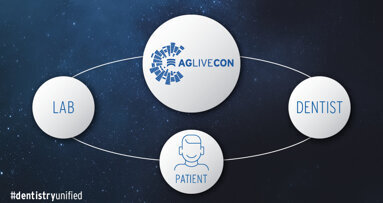Through the UK’s impending exit from the European Union, much uncertainty has been created around the position of EU citizens in the country, including those who currently work in the health care sector. After the result of last year’s referendum, in which the UK voted to leave the EU, the formal process of withdrawal duly began when Article 50 of the Treaty of Lisbon was invoked in March. The wave of negotiations for the Brexit is now underway.
EU member states have called for the rights of their citizens to be protected and have sought assurances from the UK to that effect. The government’s immediate and continuing response has been to state that rights for EU citizens will be determined in the Brexit negotiations, along with everything else to be considered.
Of course, this will raise serious concerns for the millions of EU citizens living in the UK, and indeed the millions of UK citizens living in the EU. Both groups of people currently face uncertainty until their position is determined through the conclusion of negotiations, the timescale for which is unknown.
The right to work and live in an EU member state derives from the free movement of persons, a fundamental treaty right. When the UK leaves the EU, on terms yet to be determined, the risk does exist that the free movement of persons will be lost, unless it can be negotiated to the satisfaction of both the UK government and the remaining EU member states. Any deal on the free movement of persons for the benefit of the UK will require a commitment to the EU by the UK on preserving the rights of EU citizens currently residing in the UK and will no doubt require a commitment that the UK will allow the future free movement of persons.
After the impending UK general election on 8 June, the next prime minister will have the unenviable task of undertaking the Brexit negotiations. Naturally, EU citizens will be concerned as to what deal will be secured on a host of matters, immigration being but one. Until the negotiations have been finalised, EU citizens who have lived in the UK for at least five years may have the option of British citizenship, should they wish to seek it.
A British citizen has the right to permanently live and work in the UK without any immigration restrictions; this is otherwise known as a right of abode. Under the current British citizenship rules, those aged 18 and over and of good character who meet the knowledge of English and life in the UK requirements and who have lived in the UK for five years before the date of their application can apply to become a British citizen. Such persons can apply on behalf of children younger than 18 (and those children do not need to pass any tests).
For EU citizens seeking some certainty and control over their future, an application for British citizenship may be the immediate answer.
LUXEMBOURG: Despite some growth in the overall dental workforce within the last five years, the UK still has one of the lowest ratios of dentists per capita...
Dr Dympna Kavanagh is chief dental officer in Ireland’s Department of Health and chair of the Platform for Better Oral Health in Europe. A specialist in ...
BRISTOL, UK: A recently published study conducted by the UK dentistry group Oasis Dental Care has revealed that almost one third of the UK adult population ...
The British Society of Paediatric Dentistry (BSPD) new ‘Rights from the Start’ initiative will shine a spotlight on children and young people’s ...
Time flies, doesn’t it? It seemed that the British government and the EU had all the time in the world to agree to terms for leaving and a potential ...
KOBLACH, Austria: Digitisation can bring dental technicians and dentists closer together. How new opportunities arising from this interdisciplinary approach...
BIRMINGHAM, UK: Wrights and Bien-Air Dental last week announced an exclusive partnership at the Dentistry Show in Birmingham in the UK. The British dental ...
LONDON, UK: A key European Union agency responsible for the monitoring of medicines for dental and medical patients has relocated its headquarters from ...
LONDON, UK: More than two years after a national referendum resulted in the UK electorate voting to leave the EU, Brexit remains entrenched in the ...
AMSTERDAM, Netherlands: November is diabetes awareness month at Curaden Academy. Diabetes mellitus is the third most common chronic disease in children and ...
Live webinar
Tue. 24 February 2026
6:00 pm UTC (London)
Prof. Dr. Markus B. Hürzeler
Live webinar
Tue. 24 February 2026
8:00 pm UTC (London)
Prof. Dr. Marcel A. Wainwright DDS, PhD
Live webinar
Wed. 25 February 2026
4:00 pm UTC (London)
Prof. Dr. Daniel Edelhoff
Live webinar
Wed. 25 February 2026
6:00 pm UTC (London)
Live webinar
Thu. 26 February 2026
1:00 am UTC (London)
Live webinar
Tue. 3 March 2026
4:00 pm UTC (London)
Dr. Omar Lugo Cirujano Maxilofacial
Live webinar
Wed. 4 March 2026
1:00 am UTC (London)
Dr. Vasiliki Maseli DDS, MS, EdM



 Austria / Österreich
Austria / Österreich
 Bosnia and Herzegovina / Босна и Херцеговина
Bosnia and Herzegovina / Босна и Херцеговина
 Bulgaria / България
Bulgaria / България
 Croatia / Hrvatska
Croatia / Hrvatska
 Czech Republic & Slovakia / Česká republika & Slovensko
Czech Republic & Slovakia / Česká republika & Slovensko
 France / France
France / France
 Germany / Deutschland
Germany / Deutschland
 Greece / ΕΛΛΑΔΑ
Greece / ΕΛΛΑΔΑ
 Hungary / Hungary
Hungary / Hungary
 Italy / Italia
Italy / Italia
 Netherlands / Nederland
Netherlands / Nederland
 Nordic / Nordic
Nordic / Nordic
 Poland / Polska
Poland / Polska
 Portugal / Portugal
Portugal / Portugal
 Romania & Moldova / România & Moldova
Romania & Moldova / România & Moldova
 Slovenia / Slovenija
Slovenia / Slovenija
 Serbia & Montenegro / Србија и Црна Гора
Serbia & Montenegro / Србија и Црна Гора
 Spain / España
Spain / España
 Switzerland / Schweiz
Switzerland / Schweiz
 Turkey / Türkiye
Turkey / Türkiye
 UK & Ireland / UK & Ireland
UK & Ireland / UK & Ireland
 International / International
International / International
 Brazil / Brasil
Brazil / Brasil
 Canada / Canada
Canada / Canada
 Latin America / Latinoamérica
Latin America / Latinoamérica
 USA / USA
USA / USA
 China / 中国
China / 中国
 India / भारत गणराज्य
India / भारत गणराज्य
 Pakistan / Pākistān
Pakistan / Pākistān
 Vietnam / Việt Nam
Vietnam / Việt Nam
 ASEAN / ASEAN
ASEAN / ASEAN
 Israel / מְדִינַת יִשְׂרָאֵל
Israel / מְדִינַת יִשְׂרָאֵל
 Algeria, Morocco & Tunisia / الجزائر والمغرب وتونس
Algeria, Morocco & Tunisia / الجزائر والمغرب وتونس
 Middle East / Middle East
Middle East / Middle East


















































To post a reply please login or register